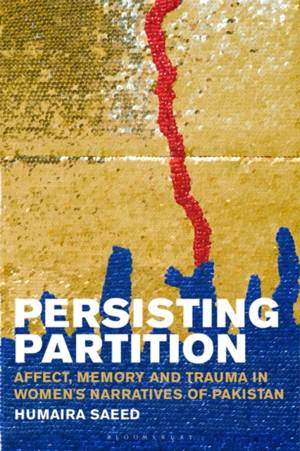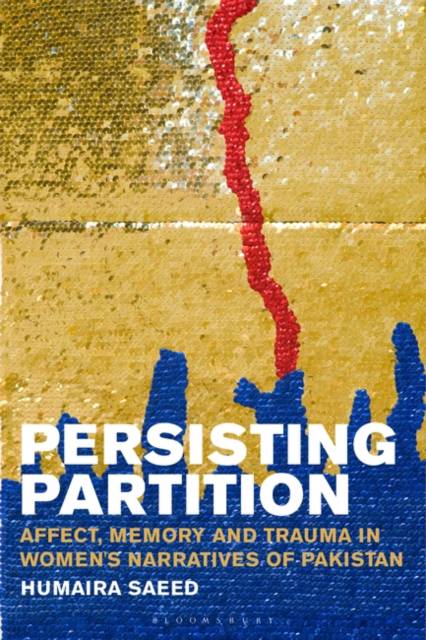
- Retrait gratuit dans votre magasin Club
- 7.000.000 titres dans notre catalogue
- Payer en toute sécurité
- Toujours un magasin près de chez vous
- Retrait gratuit dans votre magasin Club
- 7.000.000 titres dans notre catalogue
- Payer en toute sécurité
- Toujours un magasin près de chez vous
Persisting Partition
Affect, Memory and Trauma in Women's Narratives of Pakistan
Humaira Saeed
Livre relié | Anglais
111,95 €
+ 223 points
Description
Persisting Partition looks at the 1947 Partition of India from a new perspective: through an analysis of women's narratives of Pakistan. Historiography of this period tends to focus on the minutiae of bureaucratic processes, while literary studies appraises the efforts of fiction to represent the human costs of Partition. This study challenges this division between historiography and literary analysis, arguing that it limits any attempt to address the legacy and memorialisation of Partition.
Humaira Saeed considers the nationalist narratives that frame the nation's founding in terms of the masculinist discourses of sacrifice and heroism, rather than in terms of loss and trauma. As such, these narratives resist the effective integration of marginal voices, and Saeed proposes that tensions over how Partition is remembered and narrativized are asserted in particularly gendered ways. Persisting Partition considers how history is mediated through cultural production, as well as the potential for women's narratives to disrupt the homogenizing effects of dominant national historiography. Through analysing a range of cultural forms-photography, feature film, fiction, and documentary-Saeed argues for a more interdisciplinary approach to the ways in which Partition and Pakistan might be narrativised.Spécifications
Parties prenantes
- Auteur(s) :
- Editeur:
Contenu
- Nombre de pages :
- 176
- Langue:
- Anglais
Caractéristiques
- EAN:
- 9781501337420
- Date de parution :
- 05-05-22
- Format:
- Livre relié
- Format numérique:
- Genaaid
- Dimensions :
- 152 mm x 229 mm

Les avis
Nous publions uniquement les avis qui respectent les conditions requises. Consultez nos conditions pour les avis.






